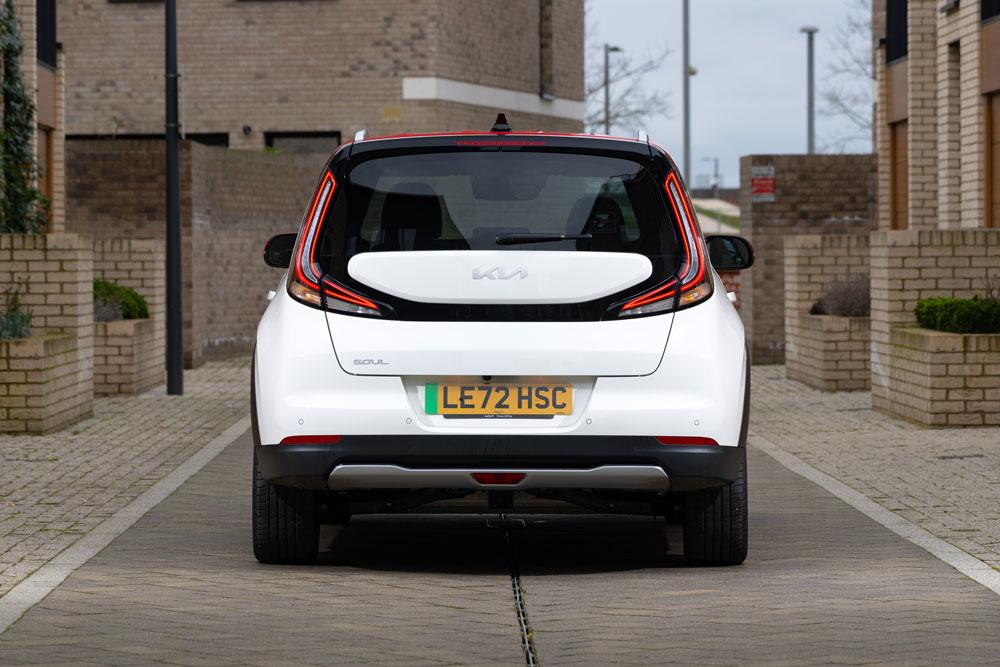Among the first ‘modern’ EVs to win fans with UK fleet drivers, the Soul EV heralded Kia’s electric vehicle ambitions. Richard Gooding finds the second-generation model blends the distinctive style of that first car with added practicality, and perhaps most importantly, range
What is it?
The first battery electric Kia to be sold globally, the Soul EV was launched in 2014. With a range of up to 132 miles from its 27kWh battery, the quirkily and upright-styled compact crossover won fans with many early EV adopters. Popular enough for a follow-up, a second-generation model first appeared in late 2019, with a larger 64kWh battery and 150kW borrowed from Kia’s wildly popular e-Niro. Revisions in 2023 have brought about a return for a smaller battery option, fitted to the ‘Urban’ model and aimed at city drivers. The ‘Explore’ variant has the larger battery as before.
What range does it have?
The new 39.2kWh battery gives a WLTP combined range of up to 171 miles, while the larger battery offers up to 280 miles of single charge driving distance. During our test in colder weather conditions, we saw 100 per cent charge distances of between 270 and 282 miles.
How long does it take to charge?
The fastest way to charge a 39.2kWh Kia Soul EV is via a 50kW DC rapid charger, which will charge the battery from 10-80 per cent in 47 minutes. The 64kWh car can handle 80kW, but takes the same amount of time to refill its bigger battery. Connected to a 7.4kW wallbox, the 39.2kWh battery takes six hours to top-up fully, while the 64kWh version takes three hours longer for the same refill.
How does it drive?
With a style all of its own, the Soul EV’s overly square appearance won’t be to everyone’s taste. However, it hides a spacious and practical cabin, capable of carrying up to 1,339 litres of luggage with the rear seats folded down. The interior feels extremely well made from high quality materials, with a less ‘digital’ feel than some EVs. Separate controls for the air conditioning, for example, make adjustment very easy on the move.
On the road, the 150kW motor has plenty of pace. While there is some whine from the electric motor – most notably on slowing down – the Soul EV is refined on smoother surfaces; rougher roads impart more road noise. The first Soul EV to be fitted with fully independent multi-link rear suspension, the ride is well-judged (if firm), but the more advanced set-up makes the Kia more fun to drive than before. The Soul EV’s 4,195mm length makes manoeuvring easy, too.
A big plus is that the four regenerative braking levels are adjusted by tactile-feeling metal steering wheel paddles that simply work welll. Three standard driving modes – Eco, Normal, and Sport – tailor the driving experience, while a further ‘Eco+’ setting can be accessed by holding down the Drive Mode button for a little longer.
What does it cost?
The limited choice of smaller motor and battery for the ‘Urban’ model, with the larger units paired to the ‘Explore’ trim, makes the Soul EV versions easy to understand. The 39.2kWh Urban costs from £32,845, and includes 17-inch alloy wheels, adaptive cruise control, Android Auto and Apple CarPlay, automatic LED headlamps, an eight-inch colour touchscreen, a reversing camera, and a pair of rear USB-C ports.
Upgrade to Explore trim, and as well as the larger battery, you’ll gain automatic wipers, leather trim, power front seat adjustment, rear privacy glass, roof rails, an ‘SUV pack’ for added style, as well as a 10.25-inch colour touchscreen.
How much does it cost to tax?
Both Kia Soul EV models are exempt from VED charges in their first and subsequent years of registration. The South Korean EV SUV has a two per cent 2023-2024 Benefit In Kind (BIK) value.
Why does my fleet need one?
Similarly to the Citroën e-C4 X elsewhere in this issue, the Kia Soul EV will appeal to those who favour a more distinctive and practical cal. The interior style does feel a little old-fashioned in an age of minimalist design and digital interfaces, but for some, us included, this won’t necessarily be unwelcome. Well-made, refined, packed with kit and lots of interior space, and with a more useful range on the 64kWh model, the Soul EV is a sensible but very likable car.

